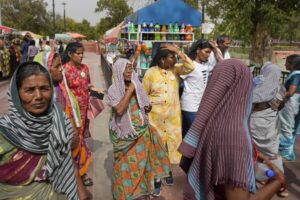 An alarming gap in India’s reporting systems has obscured the actual toll of deadly heatwaves sweeping the country. A recent investigation has uncovered major inconsistencies in official records, revealing that thousands of heat-related deaths may be going uncounted due to fragmented and outdated data mechanisms.
An alarming gap in India’s reporting systems has obscured the actual toll of deadly heatwaves sweeping the country. A recent investigation has uncovered major inconsistencies in official records, revealing that thousands of heat-related deaths may be going uncounted due to fragmented and outdated data mechanisms.
Three key agencies—the National Centre for Disease Control (NCDC), the National Crime Records Bureau (NCRB), and the India Meteorological Department (IMD)—have reported starkly different figures for heatwave casualties. This disjointed approach leaves a critical gap in understanding the real human cost of extreme heat events, making policy action and preventive measures dangerously inadequate.
As India faces more frequent and severe heatwaves driven by climate change, the failure to maintain accurate and unified death records not only distorts public perception but also denies compensation and official recognition to many affected families. The India Heat Summit 2025 has brought this pressing issue to the forefront, with experts emphasizing the need for immediate reform in data collection and reporting methods.
Without urgent modernization of these systems, India risks remaining blind to the growing threat of lethal heat, hindering its ability to protect vulnerable populations and build climate resilience.
